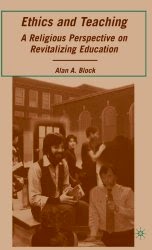The woman sitting next to me asked if I had seen Dylan
perform before. “A few times,” I said, but this wasn’t an honest response. I
have been attending Dylan concerts with some consistency since 1965 and have
been listening to him since 1962. He and I go back a long way. Last evening for
his first encore he went back to the beginning and he sang ‘Blowin’ in the
Wind.’ Probably I heard this sung first by Peter, Paul and Mary and the Chad
Mitchell Trio, but soon I owned the original performed by its author. It was
the first hymn I carried in my heart and the first protest song I knew. The
rest of my life followed suit, and the next I knew was that “The Times They
Were a’ Changin.” Bob Dylan changed my life, and over the past fifty something
years has continued to offer my life new perspectives. Emerson says that “ . . . we can only judge safely of a
discipline, of a book, of a man, or other influence, by the frame of mind it
induces, as whether that be large and serene, or dispiriting and degrading.”
Bob Dylan has always enriched my life; I cannot imagine my life apart from his
voice.
I didn’t think it was a great
concert last evening, and I didn’t like the arrangement of “Blowin’ in the
Wind.” I thought that if I had heard the song performed this way back then, I
probably would not have held it to my heart. But I paid no mind because it was
that he sang it and not the way he sang it that was important. I have always
considered that Dylan didn’t talk to his audience but rather, sang to it, and
that he had chosen that song to close the concerts spoke loudly to me despite
the arrangement. We live in troublous times. He didn’t close with “Like a
Rolling Stone” that focused on the individual, but with “Blowin’ in the Wind,”
that focused on the communal.
But then to close the evening,
Dylan sang a cover of a Frank Sinatra song: “Stay With Me,” and I thought, how
much more open does the man have to be. Once, many years ago in his concerts
with The Band he opened with “Most Likely You’ll Go Your Ways and I’ll Go Mine,”
and I understood exactly what he meant in our relationship. Tonight he spoke
differently, and I understood exactly what he meant dabout our relationship:
Should my heart not be humble,
should my eyes fail to see,
Should my feet sometimes stumble on the way, stay with me.
Like the lamb that in springtime wanders far from fold,
Comes the darkness and the frost, I get lost, I grow cold.
I grow cold, I grow weary, and I
know I have sinned,
And I go seeking shelter and I cry in the wind,
And though I grope and I blunder and I kneel and I'm wrong,
Though the rose buckles under where I walk, walk along
'Til I find to my wonder every task
least to see,
Or that I can do it, pray, stay with me.
Stay with me.
This was a confession; this was an
acknowledgement of a human life lived; this was the expression of a humility
that recognized error but not mistake; frailty but not weakness, love but not dependency.
Yes, this was the song of a man aging, who has recognized his vulnerability and
weakness, the song of a man, I suspect, a bit tired. He did sing “Workingman’s
Blues,” and he works harder than any performer I know. Dylan didn’t write the
song¾itself
an interesting comment on its position as encore¾ but it was his words he sang, and
in the words he spoke of the life work in which I have trusted and from which I
have learned.
Where else would I go? I’ll stay.











0 Comments:
Post a Comment
<< Home